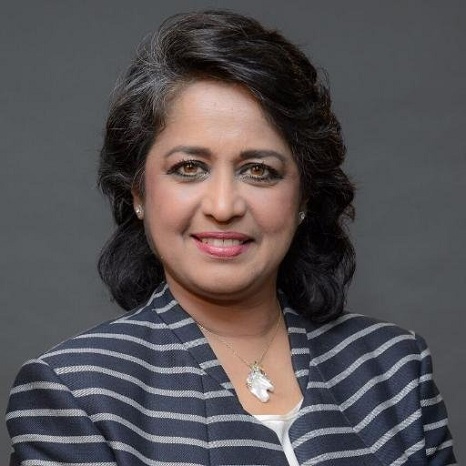H E Gurib Fakim - ISP board member
What does Her Excellency Professor Ameenah Gurib Fakim think about ISP?
H E Gurib Fakim was the first female President of the Republic of Mauritius in 2015, an office she held until 2018. She is a distinguished organic chemistry researcher studying the use and application of Mauritian plants in health, nutrition and cosmetics. As the first woman professor, she served as Dean of the Faculty of Science, Deputy Vice Chancellor at University of Mauritius between 2004 and 2010. In 2011 she became Managing Director of the research organization CIDP Research & Innovation. Between 2009 and 2016 she served as a member of ISP’s scientific reference group in chemistry, evaluating applications and giving scientific advice. Since 2021 she is an ISP board member.

Why did you want to work with ISP?
- ISP has been going on for several decades and has established itself as a credible partner for many universities and institutions in the developing world and focus countries of Sweden. I think ISP will keep consolidating its efforts in the promotion of the culture of science which is badly needed and especially if we are to attain the Sustainable Development Goals.
It is a fact that if countries are to meet the Sustainable Development Goals (SDGs), there is an urgent need to master the sciences and relevant tools to be able to ensure resilience.
What are your thoughts on ISP's work?
ISP has been doing a great job to ensure capacity building in many countries where the basic facilities are absent. The fact that ISP operates long term makes a big difference as students and researchers in those institutions have the comfort sustained financial contributions. However, ISP has to ensure also that other partners come on board to further consolidate these activities. Regional partners and countries that have done well economically and that have benefited from ISP contribution could also be encouraged to join in this effort to become donors. Here I think of countries in Southeast Asia for example.
Why do you believe it is important to support research and higher education in lower-income countries?
In 2015, the UN put forward the 17 SDGs. If we are to witness success in this initiative in 2030, we must empower the people with the appropriate tools through Science, Technology and Innovation to make gains. Women have to be empowered in order to make a dent in agriculture for example, especially the wake of a changing climate. Water and energy are key issues that all need to be addressed. All these issues can be tackled provided capacity building is reinforced and sustained in the long term. Again here I salute the initiative of ISP that has had the foresight over 60 years ago!
April 2017, updated 2021
